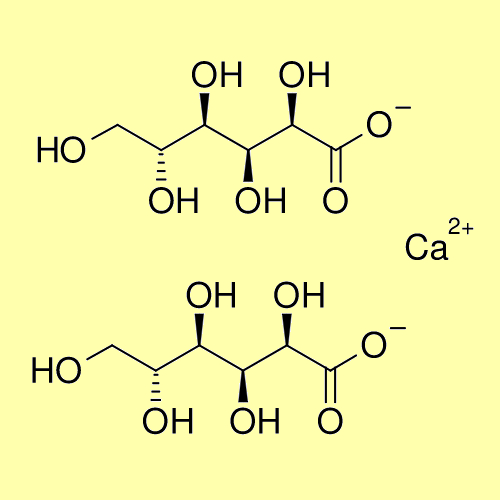Monographs licensed from Therapeutic Research Center, LLC
Scientific names: Calcium D-Glucarate
Alternate names: Calcio D-Glucarato, Calcium-D Glucarate, Calcium-D-Glucarate, Calcium D-Saccharate, Calcium Glucarate, D-Glucarate (GA), D-glucaric acid calcium salt, D-saccharic acid calcium salt, Glucarate de Calcium
Scientific names: Calcium D-Glucarate
Alternate names: Calcio D-Glucarato, Calcium-D Glucarate, Calcium-D-Glucarate, Calcium D-Saccharate, Calcium Glucarate, D-Glucarate (GA), D-glucaric acid calcium salt, D-saccharic acid calcium salt, Glucarate de Calcium
Calcium D-glucarate is a chemical similar to glucaric acid. Glucaric acid is naturally found in the body and in some fruits and vegetables.
Calcium D-glucarate is made by combining glucaric acid with calcium. Calcium D-glucarate might lower estrogen levels, which might have effects in some people with hormone-dependent cancers.
People use calcium D-glucarate for preventing breast cancer, prostate cancer, and colon cancer, and for treating other conditions, but there is no good scientific evidence to support these uses.
Don't confuse calcium D-glucarate with calcium. These are not the same.
When taken by mouth: There isn't enough reliable information to know if calcium D-glucarate is safe or what the side effects might be.
Special Precautions & Warnings:
Pregnancy and breast-feeding: There isn't enough reliable information to know if calcium D-glucarate is safe to use when pregnant or breast-feeding. Stay on the safe side and avoid use.
There is interest in using calcium D-glucarate for a number of purposes, but there isn't enough reliable information to say whether it might be helpful.
There isn't enough reliable information to know what an appropriate dose of calcium D-glucarate might be. Keep in mind that natural products are not always necessarily safe and dosages can be important. Be sure to follow relevant directions on product labels and consult a healthcare professional before using.
Interactions with pharmaceuticals
Alcohol (Ethanol)
Interaction Rating=Moderate Be cautious with this combination.
The body breaks down calcium D-glucarate to get rid of it. Alcohol might increase how fast the body gets rid of it. This might decrease the effects of calcium D-glucarate.
Kanamycin
Interaction Rating=Minor Be watchful with this combination.
Kanamycin is an antibiotic. The body breaks down kanamycin to get rid of it. Calcium D-glucarate might increase how quickly the body gets rid of it. This might decrease the effects of kanamycin.
Medications changed by the liver (Glucuronidated drugs)
Interaction Rating=Moderate Be cautious with this combination.
Some medications are changed and broken down by the liver. Calcium D-glucarate might change how quickly the liver breaks down these medications. This could change the effects and side effects of these medications.
Interactions with herbs & supplements
There are no known interactions with herbs and supplements.
There are no known interactions with foods.
vital.ly has licensed monographs from TRC Healthcare.
This monograph was last reviewed on 12/04/2024 10:00:00 and last updated on 26/04/2022 07:16:42. Monographs are reviewed and/or updated multiple times per month and at least once per year.
Natural Medicines disclaims any responsibility related to medical consequences of using any medical product. Effort is made to ensure that the information contained in this monograph is accurate at the time it was published. Consumers and medical professionals who consult this monograph are cautioned that any medical or product related decision is the sole responsibility of the consumer and/or the health care professional. A legal License Agreement sets limitations on downloading, storing, or printing content from this Database. No reproduction of this monograph or any content from this Database is permitted without written permission from the publisher. It is unlawful to download, store, or distribute content from this site.
Natural Medicines rates safety based on scientific evidence according to the following scale: Likely Safe, Possibly Safe, Possibly Unsafe, Likely Unsafe, Unsafe, and Insufficient Evidence to Rate. For more information about Natural Medicines’ Safety Rating System,
click here.
The Natural Medicines Effectiveness Ratings are assigned for specific indications. A product might be rated "Possibly Effective" for one condition, but be rated "Likely Ineffective" for another condition, depending on the evidence. For more info
click here.





